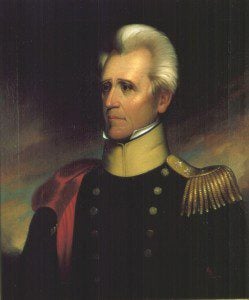So for a whole year Barnabas and Saul met with the church and taught great numbers of people. The disciples were called Christians first at Antioch.
Acts 11:22-26
And those who did belong to the church were faithful; yea, all those who were true believers in Christ took upon them, gladly, the name of Christ, or Christians as they were called, because of their belief in Christ who should come.-
Alma 46:15, The Book of Mormon
Here are some ways Americans of one religious stripe or another have defined the word “Christian.”
And as Christianity furnishes a regulative principle for both mind and will, teaching us what to believe and what to do, faith no less than works must characterize the perfect Christian.
– John Keating, New Advent Encyclopedia (Roman Catholic), “Christian.”
The question of the Samaritan was: what will happen to this man if I don’t stop to help him? Ultimately the thing that determines whether a man is a Christian is how he answers this question. . . . Every true Christian is a fighting pacifist.
-The Papers of Martin Luther King, Jr., VI:250, 258.
The phrase “born again” in Scripture literally means “to be born from above”—a spiritual rebirth. A Christian is a man, woman, or child who has experienced a spiritual new birth through the regenerating work of the Holy Spirit.
– Franklin Graham, “What Is A Christian?”
God does not leave the heart a vacuum. He cleanses the temple, and beautifies it with holiness, and then before astonished angels and men proclaims his entrance into his redeemed purified temple, saying: “Ye are the temple of the living God.” How amazing! Yes, the heart of every true Christian is the living temple of the living God, where He who was once the incarnate Deity lives, moves, and works: as God hath said, “I will dwell in them and walk in them.” Truly holiness is power!
-Phoebe Palmer, Four Years in the Old World (New York: Foster and Palmer, 1866) 591.
The growth of ignorance in the church is the logical and inevitable result of the false notion that Christianity is a life and not also a doctrine; if Christianity is not a doctrine then of course teaching is not necessary to Christianity . . . Christian education is the chief business of the hour for every Christian man. Christianity cannot subsist unless men know what Christianity is.
-J. Gresham Machen, Christianity and Liberalism (Grand Rapids: Eerdmans, 1923) 177.
And here are the ways some Mormons have answered the question.
“True believers in Christ, both in America among the Nephites and in the old world beginning in apostolic times, were called Christians . . . As the day of the great apostasy set in, the term Christian continued to be applied to the supposed followers of Christ, even though in reality they had departed from the true doctrines.”
-Bruce R. McConkie, Mormon Doctrine 2nd edition (Salt Lake City, UT: Bookcraft, 1958) 132.
In the interview with me, the reporter seemed honestly puzzled as he asked, “How could someone not consider you Christian?” I knew he was referring to the Church, but my mind somehow framed the question personally, and I found myself silently asking, “Does my life reflect the love and devotion I feel for the Savior?” . . . I testify that as you love Him, trust Him, believe Him, and follow Him, you will feel His love and approval. As you ask, “What thinks Christ of me?” you will know that you are His disciple; you are His friend.
-Neil L. Andersen, “What Thinks Christ of Me?” General Conference, April 2012.
So what, then, is a Christian? We have here a number of metrics.
1) Belief in correct doctrine. Both Machen and McConkie emphasize this point, as does, to some extent, Keating. The Book of Mormon seems to as well, though, two interesting subpoints are in order before we throw all these people onto the same boat.
A) It probably goes without saying that McConkie and Machen disagreed rather strenuously about what correct doctrine was. Machen was the intellectual heavyweight of early Protestant fundamentalism (or, as he would prefer it, Protestant orthodoxy), while McConkie served a similar function for a particularly rigorous late-twentieth-century brand of Mormonism. Meanwhile, the Book of Mormon passage does not actually specify any doctrines about Christianity which it is important to believe, except that Jesus existed and would come (the verses are written before Christ’s birth in the Book of Mormon’s timeline); this was certainly necessary but not sufficient for McConkie or Machen.
B) However, it is nonetheless significant that there is such broad consensus among our completely arbitrary panel that doctrine is important. After all, there’s no particular reason why theology should be essential to any given religion, and the fact that it is so central to Machen and McConkie says as much about the mid-twentieth century as it does about Mormonism or Protestantism: this was an age in which science had made the ability to rationally explain and justify something a gauge for its worth, and both American Protestantism and Mormonism are still struggling with that heritage.
2) The working of the Holy Spirit. Palmer. Graham. This is the heritage of American evangelicalism, ultimately derived from the Protestant Reformation, which taught that human beings were utterly incapable of contributing anything to their own salvation, and were thus utterly dependent upon the grace of God. The experience of that grace through the Holy Spirit was “conversion,” and it actually remade human nature, either suppressing or eradicating the evil the fall had entwined into human nature and making it possible to do good and love God.
Mormons, who reject the premise of human incapacity, rarely approach anything like this notion, and instead tend to speak of the Holy Spirit in terms of point 1: it communicates information. It confirms propositional truths unverifiable any other way – the veracity of the claims in the Book of Mormon, for instance, or the reality of Joseph Smith’s divine calling. It offers advice and counsel and guidance. It is this confirmation rather than any sort of metaphysical transformation which makes one a Christian within Mormonism, by providing information which makes it possible to make a true decision for Christ. For evangelicals to whom being Christian is an altered state of being, not simply a resolution, Mormons are missing the point.
3) Christianity as a way of life. Machen is a bit suspicious of this, but contemporary Mormonism, at least in the person of Neil Andersen, is entirely on board. Indeed, this is the way that Mormons generally respond to Protestants who accuse them of a lack of Christianity: following the ways Mormons think about the Holy Spirit as discussed in 2, Christianity to most Mormons reflects a commitment to following the teachings and example of Jesus Christ.
Interestingly enough, this way of thinking about Christian identity, which downplays detailed and accurate belief in favor of Christlike living, draws Mormons into procedural, though not perhaps substantive, congruence with activist Christianity of the sort King espouses. It’s difficult to peg King as a theologically “liberal” or “conservative” Christian (James Cone has argued with some force that he owes much more to the black church tradition than to the theology he read in graduate school), but it’s true that among historically white denominations the argument that Christianity has more to do with behavior than belief has found the most traction in the liberal Protestant tradition. This is only one way among many that Mormonism tends to complicate Protestant dichotomies.
One final quotation:
Today I quit being a Christian. I’m out. I remain committed to Christ as always but not to being Christian or part of Christianity. It’s simply impossible for me to belong to this quarrelsome, hostile, disputatious and deservedly infamous group . . . In the name of Christ I refuse to be anti-gay. I refuse to be anti-feminist. I refuse to be anti-artificial birth control.
-Anne Rice, on Facebook, July 29, 2010
Rice’s statement is a rather clumsy and blunt expression of a deep and important truth: being “Christian” is always political. What one believes about what it means to be Christian expresses what one believes about what is important or valuable about human existence. When Mormons and evangelicals picks sides in this argument, then, they are saying as much about themselves as about their interlocutors.











